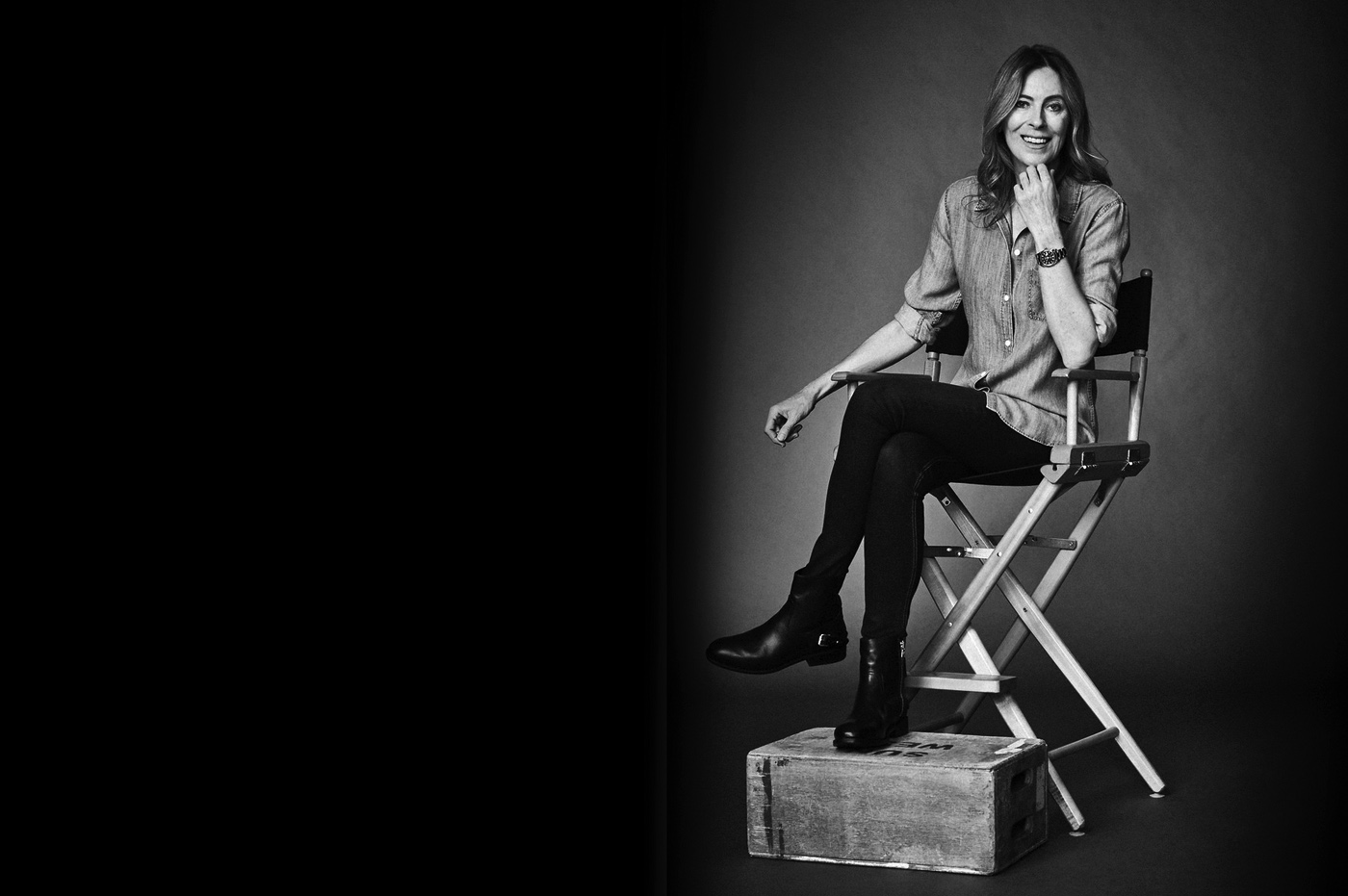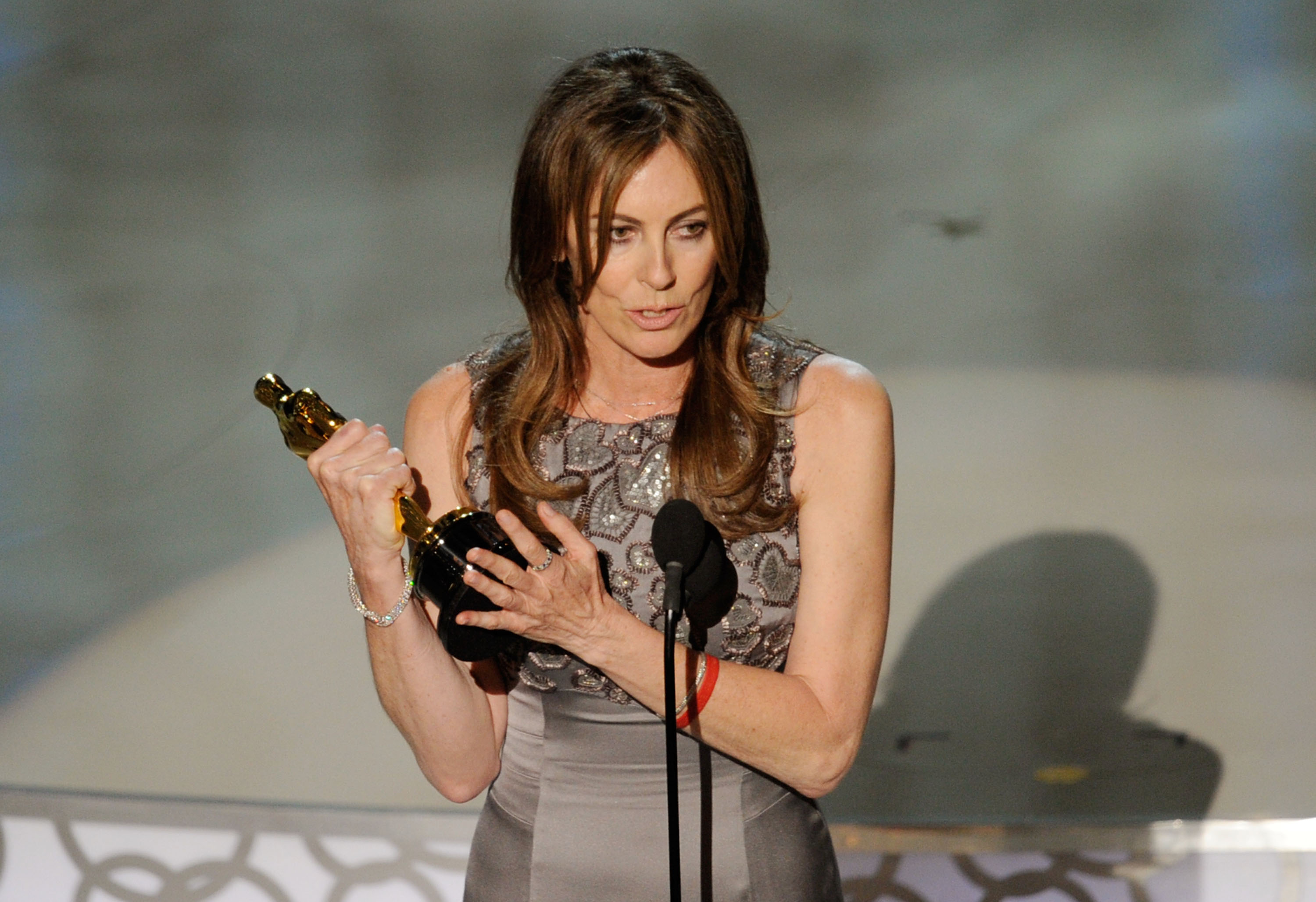Kathryn Bigelow: a pioneer in the director’s chair
The Academy Award winner has built her career on subverting gender and genre stereotypes

The first and only woman to win the Academy Award for Best Director, Kathryn Bigelow is best known for tense, gritty films including Hurt Locker and Zero Dark Thirty.
Confounding stereotypes about feminine film-making, the 66-year-old director, producer and writer has built a career on the study of violence - from biker gangs in The Loveless, her first full-length feature, to her controversial dramatisation of the US hunt for Osama bin Laden.
Bigelow’s films “manage to defy classification, never wholly belonging to one specific genre,” Katherine Barscay writes for Cinephile. “These films are very much about blurring boundaries, especially those that surround gender and genre.”
The Week
Escape your echo chamber. Get the facts behind the news, plus analysis from multiple perspectives.

Sign up for The Week's Free Newsletters
From our morning news briefing to a weekly Good News Newsletter, get the best of The Week delivered directly to your inbox.
From our morning news briefing to a weekly Good News Newsletter, get the best of The Week delivered directly to your inbox.
Bigelow is also a Rolex Testimonee, and recently appeared alongside fellow Testimonees and directors James Cameron, Alejandro G. Inarritu and Martin Scorsese in a film made by the luxury watch company. Rolex is the Exclusive Watch of the Academy Awards and supports the Academy of Motion Picture Arts and Sciences in its preservation of cinematic history and its celebration of achievement.
In the film, Bigelow said she felt “extremely humbled and honoured to be in the company of such extraordinary and enduring talents”.
Time magazine describes her as “perhaps the finest action director at work today,” but Bigelow didn’t set out to be a film-maker. Raised in the small city of San Carlos in northern California by a librarian and a paint factory manager, she dreamt of becoming an artist.
A painfully shy child who was self-conscious about her height, Bigelow says art helped ease her anxiety. She was inspired by her father, who’s “great passion would have been to be a cartoonist,” Bigelow says. “He would draw for me, day in, day out - sketches, caricatures. I think part of my interest in art had to do with his yearning for something he could never have.”
Bigelow studied at the San Francisco Art Institute before moving to New York for a fellowship at the Whitney Museum of American Art, where she painted under the guidance of Susan Sontag. It wasn’t until the 1980s that she transitioned into film-making and began studying philosophy and film theory at Columbia University.
“Part of the big pivot from art to film was embracing the narrative, because what I had been doing thus far was either analytical or non-narrative,” Bigelow explains. “I think I had a conversation with Andy Warhol somewhere in all this, and Andy was saying that there’s something way more populist about film than art - that art’s very elitist, so you’re excluding a large audience.”
During grad school, she released her first short film, The Set-Up, a brutal, experimental piece exploring the allure of male violence. Although Bigelow made her feature-length directorial debut in 1981 with motorcycle-gang drama The Loveless, her breakthrough came with the western-horror hybrid Near Dark, a vampire film “steeped in the kind of hot, sticky, shocking violence that’s alternately exciting and appalling,” according to New York Times film critic Manohla Dargis.
She won further praise for the audacious 1990 police drama Blue Steel, starring Jamie Lee Curtis, as well as the sci-fi noir Strange Days (1995), which Rolling Stone described as “era-defining”. Yvonne Tasker, professor of film and gender studies at the University of East Anglia, says Bigelow’s early films provoked excitement in academic circles. “There were endless discussions about how they subtly subverted the traditional Hollywood storylines and gender representations, about her deconstructions of masculinity and the male gaze,” she told The Observer.
Despite earning a cult following and praise from critics, Bigelow didn’t receive widespread recognition from Hollywood until 2010, when she became the first woman in history to win the Academy Award for Best Director with The Hurt Locker. The low-budget war drama, which follows a US Army bomb disposal squad in Iraq during the summer of 2004, scooped up five other awards including Best Picture. In her acceptance speech, Bigelow described it as a “moment of a lifetime”.

The director’s next offering was Zero Dark Thirty, a controversial film about the decade-long manhunt for Bin Laden and the Navy Seal raid in which he was killed. The riveting, emotionally-complex thriller was a huge box office success, but some argued that it tacitly endorsed torture as an effective intelligence-gathering method. However, Bigelow insists the issue was handled sensitively. “I’m proud of the movie, and I stand behind it completely,” she says. “I think that it’s a deeply moral movie that questions the use of force.”
Even with the commercial and critical success she has enjoyed, Bigelow remains an industry outsider in many respects, according to Dargis. The majority of her films have been bankrolled by independent companies - not the major studios - in order to give her the creative control she desires.
Commentators have been quick to categorise Bigelow as a feminist pioneer who has smashed the glass ceiling in an industry ruled by men. But Bigelow resists being labelled as a feminist director, insisting that her gender should not define who she is as a film-maker. “It's irrelevant who or what directed a movie, the important thing is that you either respond to it or you don't,” Bigelow says. “There should be more women directing. I think there's just not the awareness that it’s really possible. It is.”
Discover more on Rolex.com
A free daily email with the biggest news stories of the day – and the best features from TheWeek.com
-
 6 exquisite homes with vast acreage
6 exquisite homes with vast acreageFeature Featuring an off-the-grid contemporary home in New Mexico and lakefront farmhouse in Massachusetts
-
 Film reviews: ‘Wuthering Heights,’ ‘Good Luck, Have Fun, Don’t Die,’ and ‘Sirat’
Film reviews: ‘Wuthering Heights,’ ‘Good Luck, Have Fun, Don’t Die,’ and ‘Sirat’Feature An inconvenient love torments a would-be couple, a gonzo time traveler seeks to save humanity from AI, and a father’s desperate search goes deeply sideways
-
 Political cartoons for February 16
Political cartoons for February 16Cartoons Monday’s political cartoons include President's Day, a valentine from the Epstein files, and more